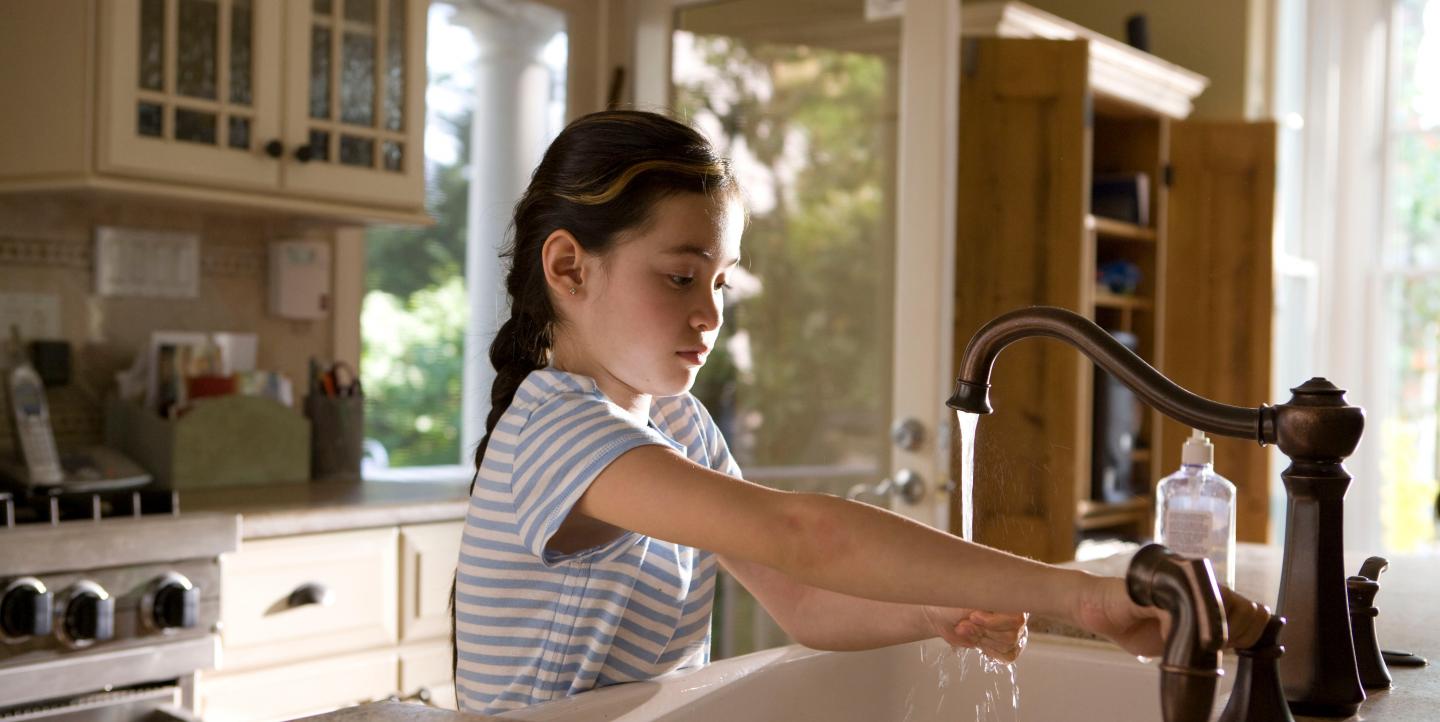We talked with Dr. Karen Kotloff, head of the Division of Infectious Disease and Tropical Pediatrics at the University of Maryland, as part of the Global Health Crisis Reporting Forum — a project with our parent organization, the International Center for Journalists (ICFJ). She also is the Associate Director of Clinical Studies at the university’s Center for Vaccine Development and Global Health and has worked extensively in Africa. The online talk was moderated by Joyce Barnathan, president of ICFJ.
This article is part of our online coverage of reporting on COVID-19. To see more resources, click here.
Dr. Kotloff said that while children infected with COVID-19 are faring better than adults in countries that have seen widespread outbreaks, it’s too soon to say whether the same will be true in countries where poverty, malnutrition and diseases like HIV and tuberculosis are more widespread.
“We know from other viruses that there are regional differences and that … the negative effects on the immune system of things like HIV and malnutrition cause (children) to have a more severe illness,” she said. “We don’t know whether that’s the case with COVID. ... We really don’t know what will happen in places like Africa and Asia where malnutrition is a big problem.”
Here are highlights from the discussion:
Why do children have fewer complications from COVID-19 than adults do?
“To be honest, we really don’t know why that is...We wonder if there’s a difference in the immune response of children to infection."
Even though children who have had the virus appear to be healthy, could there be long-term effects?
"By far, most children who become infected have mild disease. About 10 percent will have more severe disease. But there are only a handful of children that we know about who have died from this infection.
"Children are faring well for the most part. That’s the wonderful part of the news. I don’t think we have enough information at this point to know what happens to the children down the line.”
[Read more: 10 tips for journalists covering COVID-19]
How can we control the spread of the disease in densely populated countries?
“With infections that spread person to person, you have to take the social context and the political context into account when you’re trying to stop spread. (In Africa), there are families in rural areas with 200 people who share a cooking fire..Social isolation… is not going to work in an environment like that. We need to seriously think about how to approach control of this infection if we see that it’s starting to spread in Africa, and come up with policies and procedures that are applicable. I do worry very much that a vaccine or some type of prevention on that scale will really have to be the answer.”
How will children in refugee camps and other overcrowded places be affected?
“I worry very much about the detention compounds in this country (the United States) for immigrants. … That could be an explosive situation, putting everyone at risk. The same is true when you have low-resource settings like refugee camps. The best thing you can do is put as much soap and water as possible and to separate people as much as possible.”
Are pregnant women at particular risk?
“We know that for certain infections like flu, which is also a respiratory virus, pregnant women are more susceptible to more severe infections.
"During SARS there was an increased risk of bad pregnancy outcomes. So far what we’ve seen (with COVID-19) is that it doesn’t seem to more severely affect pregnant women…There have been premature infants who have been born, but we really don’t know if the risk is increased for prematurity. It’s going to take time to tease that out."
[Read more: How can journalists protect themselves during the COVID-19 pandemic?]
What about the fetus?
”So far, nobody has been able to detect evidence that the mother can pass it during pregnancy to the baby.”
Should pregnant women take any special precautions?
“There are limited precautions that can be very effective, and they’re the same precautions that all people should take: Isolate yourself, wash your hands anytime you’ve been in close contact with someone else or have been touching surfaces that the public has access to.”
Should women who have the virus breastfeed?
“Overwhelmingly it appears that the benefits of breastfeeding outweigh the potential risks. It’s recommended that if a woman knows or thinks she’s infected, she can continue to breastfeed but she should take precautions [such as] a mask that can cover the nose and mouth.
"She should wash her hands before touching the baby. And in countries where pumping is available, that is another alternative but she needs to make sure that when she pumps, her hands are clean and her face is covered. … Or turn it over to someone else if you can. That would be another option, to have another nursing mother nurse your child.”
Are newborn babies being tested?
“No, they are not being tested, and pregnant women are not being tested. Testing has been… one of the biggest impediments to answering a lot of questions … because there are extreme shortages in diagnostic tests in particular areas. … There is a lot of inequity in terms of who has tests available and who doesn’t. Right now, it’s not recommended to do any routine testing on any population in the United States."
Will there be a special vaccine for children?
“It will be the general vaccine for the population. I can’t think of an example of a vaccine that’s been shown to be safe for adults and not for children. … But we don’t even do testing on children until we’ve shown the vaccine to be safe in adults. So it takes time to get to pregnant women and children.”
When will a vaccine be available?
“I would say at least 12-18 months at a minimum” for a vaccine to be available."
Are there any treatments that are effective for children?
“There is no treatment that we know to be effective now. … I would not recommend that a parent go out and get (malaria drug) chloroquine and give it to the child… It could have side effects and toxicity. When it is used, it needs to be given appropriately. … "
How quickly will we know if a drug is effective as a treatment for COVID-19?
“We’re going to know about (the efficacy of those drugs) much more quickly. I think over the ensuing months we will know the efficacy of remdesivir and chloroquine in well-conducted studies, and then we’ll be able to make some recommendations.”
How can parents keep children emotionally healthy during a time of social isolation?
"Be creative. In a sense, parents are probably spending more time with their children than they did when they were working full time… I think there are very creative ways to keep children connected to their friends using social media…. There’s a lot of entertainment that can happen virtually. I think keeping your child busy and active and happy can really help."
How should parents talk to their children about the pandemic?
“Children are sponges, and they’re going to absorb the anxiety of their parents. … I think they need to talk to their children directly … and assure their children that their parents are doing everything to keep them safe.
“I think giving children simple facts that there’s an infection going around and we want to protect our family, so we’re going to stay indoors, but it’s only for a limited time and that will stop. … Parents should try to find new normal routines that their children can adapt to.”
What about teenagers?
“I think teens are actually much more of a challenge because teens think of themselves as not being vulnerable in any way. … Teens are continuing to congregate. … Infections that are sometimes severe in 20- and 30-year-olds are on the uptick in the U.S. in particular. We need to find effective ways of messaging to teens, which is always a challenge. … They need targeted messaging to keep them from being social. They are programmed to be social.”
Is there evidence that shutting down schools is an effective way to keep the virus from spreading?
“School age children are a reservoir (for the flu). They can not be sick yet be a source of transmitting that back to adults and the elderly who are at increased risk of death. … We don’t know if that’s happening (with coronavirus) because the ways to discover that are not available to us yet. … There’s no proof but I think it’s a cautious and sensible approach.”
The Global Health Crisis Reporting Forum from ICFJ and IJNet connects journalists covering the novel coronavirus pandemic with leading health experts, resources and each other. Learn more and join the Forum through its Facebook group. Journalists can use these insights and quotes in their stories.


